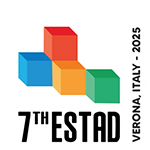Speaker
Description
Continuous casting is a crucial process in the production of long products in the metals industry. It offers several advantages that make it a preferred method over traditional ingot casting: efficiency, productivity, material utilization and energy savings, quality improvement by consistent quality and reduced defects.
The continuous casting process can produce a wide range of cross-sectional shapes and sizes, providing flexibility to meet diverse market demands; alloy versatility allows manufacturers to produce different grades of steel and other metals.
Casting process technological improvements such as Mechanical Soft Reduction (MSR) and Final Electromagnetic Stirring (FEMS) play pivotal roles in enhancing the quality and competitiveness of long products in the metals market, enabling manufacturers to meet its evolving demands while maintaining cost efficiency and sustainability.
Mechanical Soft Reduction (MSR) improves internal quality by reducing centerline segregation and porosity by carefully applying mechanical compression forces along the cast strand, leading to a more homogeneous and compact internal structure, crucial for high performance applications, improving the mechanical and corrosion resistant properties of long products.
Final electromagnetic stirring (FEMS), consisting in stirring the molten metal present in the inner part of the cast strand at proper positions where the solidification is still not completed, improves the internal quality, structural soundness and segregation, by promoting the formation of a finer and more uniform grain structure at the center.
This paper will highlight MSR and FEMS role in modern steelmaking, with the unique challenges and solutions encountered in their application on long product casters. Case studies of recently commissioned casters by SMS Concast will be presented.
